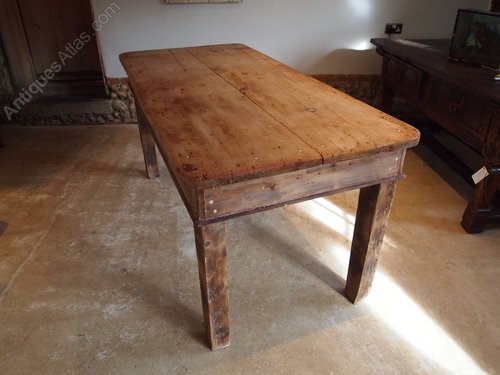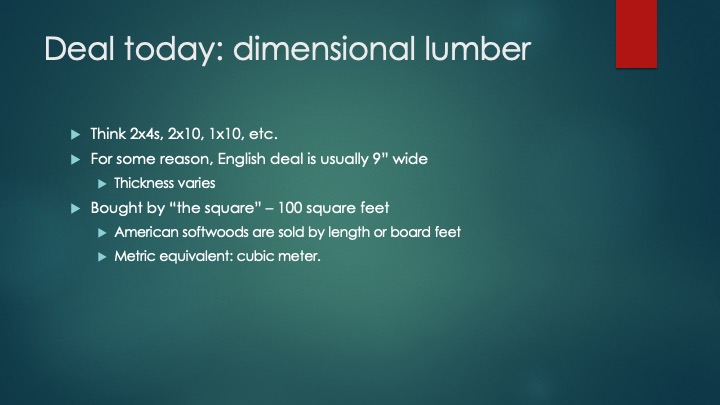
(This took a fair amount of Googling, since the algorithm thinks you intend the commercial meaning of “deal.”)
When the group discussed “The Man with the Twisted Lip” at our last meeting, it was the second Holmes case we’d read in a row (following “The Red-Headed League”) to feature the kind of wood called “deal.” In REDH, it was the material of some cheap furniture in the League offices; in TWIS, it made up the box that held the building bricks Mr. Neville St. Clair had bought for his son. It will crop up again for us next month in “The Empty House,” in which we learn that Holmes conducted his chemical researches on a “deal-topped table.” But what in the world is “deal”?
The question intrigued NMSOBC member Ken Meltsner (“The Hiding-Place Under the Carpet”), himself an amateur woodworker. Despite the minor handicap of originally believing that the blocks, and not the box holding them, were made of deal, he put together a PowerPoint presentation about the matter, which we will now share here.
As a newcomer to making such presentations, Ken began by explaining how he decided on his topic, using some spousal advice from your humble Gazetteer:
He followed by explaining what deal wood was (essentially, cheap planks of softwood), what it is now, and the origin of the word.
And, in this addendum, noted his original error, which answers the question he raised as to why the bricks would be made of deal, since blocks are usually made of hardwood.

So, despite a misreading, some interesting and useful background information for modern-day Americans trying to make sense of Watson’s accounts.







An interesting, archaic word for a modern type of lumber, one I wasn’t aware of. That ‘deal’ is not the ‘deal’ in your title, which seems to come from the meaning of ‘apportion out to various recipients – as in deal a hand of cards. A ‘Good deal’ occurs when the portioning is generous, or unequal. 🙂
LikeLiked by 1 person
I do know that it is a completely different word, aka a homograph; I just felt that the quote was appropriate to the subject. It was a minuscule joke.
Merriam-Webster says this about the origins of the words. [Noun (2) is this one, meaning an indefinite quantity. Noun (1) is the one meaning business arrangement or situation (“What’s the deal?”). Noun (3) is the wooden plank meaning.]
Sorry. It felt like a joke, but, too often, it’s difficult to tell humor from illiteracy. I keep a file of misusages that I find, to publish about every six months. We tried to recoop our losses. 🙄
LikeLike